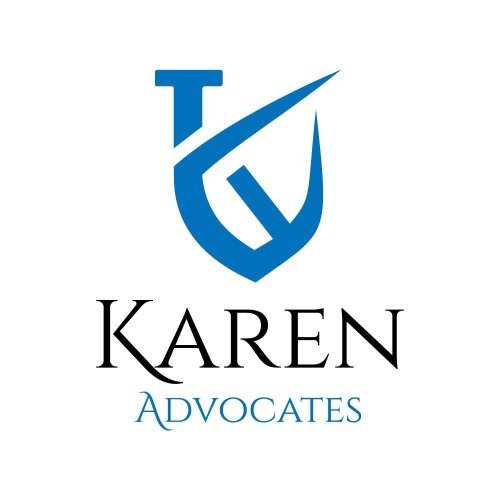Best Guardianship Lawyers in Nairobi
Share your needs with us, get contacted by law firms.
Free. Takes 2 min.
List of the best lawyers in Nairobi, Kenya
Kenya Guardianship Legal Articles
Browse our 1 legal article about Guardianship in Kenya written by expert lawyers.
- Guardianship in Kenya
- The Children's Act 2022 defines a guardian as a person appointed, through a will or deed, by a child's parent or through an order of the Court to assume parental responsibility over a child. A guardian can act alone or jointly with the child's surviving parent. Power of the Court... Read more →
About Guardianship Law in Nairobi, Kenya:
Guardianship in Nairobi, Kenya refers to the legal process through which an individual is appointed by the court to make decisions on behalf of a minor or someone incapable of taking care of themselves or their property. The guardian is responsible for the well-being, care, and protection of the person under their guardianship.
Why You May Need a Lawyer:
There are several situations where seeking legal help in Guardianship is crucial:
- When seeking to establish guardianship over a minor or an individual unable to care for themselves.
- When challenging or contesting a guardianship appointment.
- When there are disputes or conflicts regarding the well-being or property of the person under guardianship.
- When navigating the legal process of terminating or modifying an existing guardianship.
Local Laws Overview:
Key aspects to note regarding Guardianship laws in Nairobi, Kenya are:
- Guardianship is regulated by the Children Act of 2001 and the Mental Health Act of 1989.
- The court may appoint guardianship jointly to multiple individuals or to a single person.
- The guardian can be a family member, close relative, or any suitable person designated by the court.
- The court prioritizes the best interests and welfare of the person under guardianship when making decisions.
- The guardian must regularly report to the court on the well-being and management of the person under their care.
Frequently Asked Questions:
Q: How do I apply for guardianship over a minor in Nairobi, Kenya?
A: To apply for guardianship, you need to file a petition with the Children's Court in Nairobi, providing relevant details such as your relationship with the minor, reasons for seeking guardianship, and evidence of the minor's best interests.
Q: Can the court remove a guardian appointed by them?
A: Yes, the court has the power to remove a guardian if they are found to be unfit or if it is in the best interests of the person under guardianship. A petition must be filed with the court, providing valid reasons for the removal.
Q: Can I transfer guardianship to someone else?
A: Yes, if you wish to transfer guardianship to another person, you must file a petition with the court, explaining the reasons for the transfer and demonstrating that it is in the best interests of the person under guardianship.
Q: Can I contest a guardianship appointment?
A: Yes, if you believe that someone other than the appointed guardian would be better suited to care for the person in need, you can contest the appointment by filing a petition with the court, providing compelling reasons and supporting evidence.
Q: What are the responsibilities of a guardian?
A: The responsibilities of a guardian include providing for the well-being, care, and protection of the person under their guardianship. This involves making decisions related to education, healthcare, and managing the person's property and assets.
Additional Resources:
For further information and assistance, you may refer to the following resources:
- Children's Court in Nairobi
- The Law Society of Kenya
- Department of Children's Services, Nairobi
Next Steps:
If you require legal assistance in matters of Guardianship in Nairobi, Kenya, it is recommended to:
- Consult with a reputable lawyer specializing in Guardianship law.
- Gather necessary documents and evidence to support your case.
- File a petition with the relevant court, clearly stating your reasons and providing all required information.
- Follow the court's instructions and attend all hearings related to your case.
- Consider seeking mediation or alternative dispute resolution methods when appropriate.
Lawzana helps you find the best lawyers and law firms in Nairobi through a curated and pre-screened list of qualified legal professionals. Our platform offers rankings and detailed profiles of attorneys and law firms, allowing you to compare based on practice areas, including Guardianship, experience, and client feedback.
Each profile includes a description of the firm's areas of practice, client reviews, team members and partners, year of establishment, spoken languages, office locations, contact information, social media presence, and any published articles or resources. Most firms on our platform speak English and are experienced in both local and international legal matters.
Get a quote from top-rated law firms in Nairobi, Kenya — quickly, securely, and without unnecessary hassle.
Disclaimer:
The information provided on this page is for general informational purposes only and does not constitute legal advice. While we strive to ensure the accuracy and relevance of the content, legal information may change over time, and interpretations of the law can vary. You should always consult with a qualified legal professional for advice specific to your situation.
We disclaim all liability for actions taken or not taken based on the content of this page. If you believe any information is incorrect or outdated, please contact us, and we will review and update it where appropriate.
















